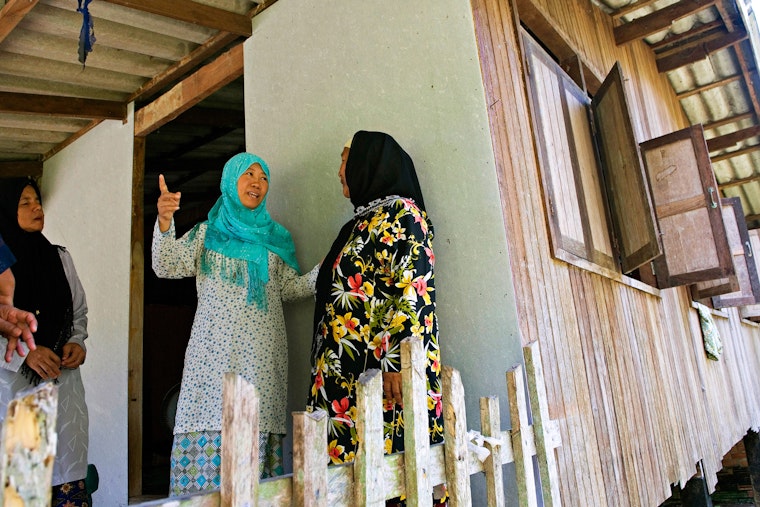Long Ignored in Global Development, Mental Illness Is Declared a Top Priority
By Judith Klein

On April 13 and 14, the World Bank and World Health Organization did something that no institution of their size has ever done before: they put mental health squarely on the global development agenda.
At Out of the Shadows, a jointly hosted high-level event leading up to the bank’s annual spring meetings with finance ministers from all over the world, the two organizations promoted cost-effective treatment for anxiety and depression, declaring that failure to treat these two most common mental illnesses can contribute to poverty and diminish economic growth. This is a groundbreaking move that could have enormous positive implications for people with mental illness worldwide—but only if grounded in a human rights–based approach.
“We need to put the same energy into mental health as we did into HIV,” said World Bank President Jim Yong Kim. “Let’s put mental health in the spotlight and keep it there. I give my personal commitment that we will not forget mental health.” At the same event, WHO Director General Margaret Chan declared, “In mental health, we must approach with compassion, in solidarity with the people. As long as I am director general, I won’t be a lame duck.”
This is excellent news because, to date, mental health has been virtually absent from the global development agenda. In most countries—including in developed countries—government spending on mental health is woefully inadequate. Millions of people with mental illness have poor or no access to the services and support they need to exercise their right to live in the community.
The World Bank and WHO’s declaration seeks to rectify this. However, the people who need support the most will fall through the cracks of a global development agenda that is not approached from a standpoint of human rights. The developing world raises special concerns, since developing countries are eager to become “developed countries,” and infrastructure, whether financed through loans from the World Bank or funded by international development agencies, is alluring to governments.
New buildings look good, and allow politicians to cut ribbons with television cameras rolling. The danger is that, in mental health, this translates into more asylums that segregate people with mental illness from their communities.
Take the case of Burma, where mental health care is provided in isolated institutions, and only to those who can access the two that exist in the country. The government is now adding 200 beds to the decrepit psychiatric hospital outside Yangon, where people languish—often for decades—with very few ever being successfully rehabilitated.
This is one example of poor investment in mental health care, but it is an unfortunate trend in many countries. More beds in archaic mental hospitals are not what people with mental illness need. What they need are services and support, and a system that protects their human rights. What they need is compassion, and a sense of being valued citizens in inclusive communities. A rights-based approach to mental health need not pump millions of dollars into new infrastructure that will only segregate and isolate people, and focus on their “pathologies.”
There is an alternative to this grim scene, and it, too, exists in Burma. Aung Clinic is a model of what the future of mental health could look like. It is a community-based general practice medical clinic into which mental health services are fully integrated. This is collaborative care: an evidence-based approach to caring for chronic mental illness in primary care settings.
People with mental illness receive holistic care for their physical and mental health, including talk therapy, crisis intervention, family support, and medication if they need it. Clients and doctors agree on treatment plans together. It is a low-cost, effective health care service that should be replicated everywhere.
We are seeing the results already. People have the services and the support that they need to get jobs, repair relationships, and establish friendships. They are once again citizens who have regained dignity and self-respect. In rolling out its development plan, it is critical that the World Bank and WHO look at the progressive, rights-based mental health care that already exists in target countries and then invest in scaling those models up.
If we keep human beings and human rights at the center of the effort to put mental health on the global agenda, we will make meaningful change. If the focus is on the system and the infrastructure, the people who need help will be an afterthought, falling through the cracks yet again.
Aung Clinic is a grantee of the Open Society Foundations.
Until March 2019, Judith Klein was a senior adviser to the Open Society Public Health Program.